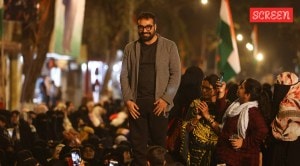The power of two
Om Prakash Chautala's Haryana would perhaps be an unlikely crucible for experiments in social reform. But in demonstrating resolve to adhere...

Om Prakash Chautala’s Haryana would perhaps be an unlikely crucible for experiments in social reform. But in demonstrating resolve to adhere to the Haryana Panchayati Raj Act 1994, it could guide the political class in the rest of the country towards a renewed effort at population control. On Wednesday, the Supreme Court dismissed a slew of petitions against a provision in the law barring anyone having more than two living children from the post of panch or sarpanch. A handful of states, including Madhya Pradesh and Maharashtra, already have similar laws, and it is to be hoped that the apex court’s endorsement will spur Parliament and other state legislatures into extending the two-child norm to all elected bodies.
To be sure, objection to the two-child norm is widespread and merits careful scrutiny. Petitioners against the Haryana legislation, for instance, argued that it contravened Muslim personal law, thereby violating Article 25 of the Constitution according every citizen the freedom to practise one’s religion. Others have voiced reservations on more secular grounds. Women’s groups, for instance, have worried that the law could discourage the young from entering the electoral fray. The qualifying age may be just 21, they say, but societal pressure to bear more children could dissuade young men and — especially — women from seeking an office that limits family size. Accordingly, they fear, patriarchs will be more comfortable fielding female relative of a certain, non-childbearing age. Such coercive measures, it is argued, in any case have an unhappy fallout. Much is made of a case in Madhya Pradesh where a woman sarpanch gave up a third child for adoption. Hypothetical scenarios are offered of non-registration of births and a spurt in female foeticide.
It is true that coercion sits uneasy in a democracy. Free will and enlightened state intervention are extremely difficult to balance. Indeed, it can be nobody’s case that the state be empowered to enter citizens’ homes and dictate family size. But in a country like ours where voter and voted share such a sustained rapport, those seeking election can be able role models. There is thus nothing unreasonable in asking them to be responsive to the population crisis.
Photos


- 01
- 02
- 03
- 04
- 05





























